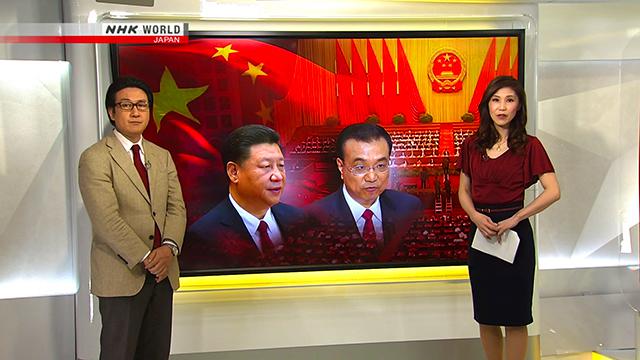Mikoda: The deputy director of China's National Development and Reform Commission, Ning Jizhe, said China reduced its excess steel production capacity by 65 million tons last year and would cut an additional 50 million tons this year. He also said China will reduce its oversupply of construction materials and ferrous metals. Structural reforms such as these could cause unemployment and have other negative impacts on the economy.
But China's Communist Party wants to hold its convention this autumn in a stable environment. So the government is planning fiscal policies to support the economy. Meanwhile, China wants to increase exports to offset slow domestic demand. But US President Donald Trump has appeared as a new risk on the horizon that didn't exist last year.
Question: Do you mean possible trade friction?
Mikoda: Exactly. China accounts for nearly half of the United States' trade deficit. The Trump administration is imposing sanctions such as anti-dumping duties on Chinese imports, saying that the goods are sold below fair value. The US is expected to step up sanctions this year to reduce imports from China.
Chinese Commerce Minister Zhong Shan countered with a reminder of what percentage of US exports goes to China. It imports 26 percent of Boeing aircraft, 16 percent of automobiles, 15 percent of semiconductors and 56 percent of US soybeans.
"Many Americans think China cannot cut off the US, but neither can the US cut off China."
-Zhong Shan / Commerce Minister
I guess he suggested that if the US increases sanctions, China will retaliate. The remark can be interpreted as a warning that trade friction should be avoided for the sake of the US economy as well.
Question: What are some of the other issues you focused on?
Mikoda: Funds are flowing out of China due to concerns over the country's murky economic outlook. The yuan has dropped about 15 percent in value against the dollar in the last 3 years. China has repeatedly intervened in the market, releasing dollars from its foreign currency reserves to buy yuan. China's foreign reserves have plunged and stand at less than 3 trillion dollars.
The governor of the People's Bank of China, Zhou Xiaochuan, says that is not a problem. But despite the remark, the Chinese government has moved to restrict capital transactions in order to curb the outflow of funds. That's because if capital continues to leave China, the country could face a shortage of funds for economic growth, and a bursting of the real estate bubble that could hurt business for banks.
However, if China's structural reforms do not move forward, it could lead to a further run on capital by investors discouraged by poor prospects of sustainable growth. China's economy, on the surface, looks set to pursue a path of stability. But concerns remain that it could lead to an expansion of risks for the future.
